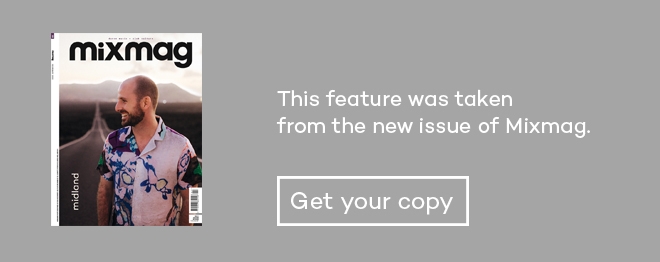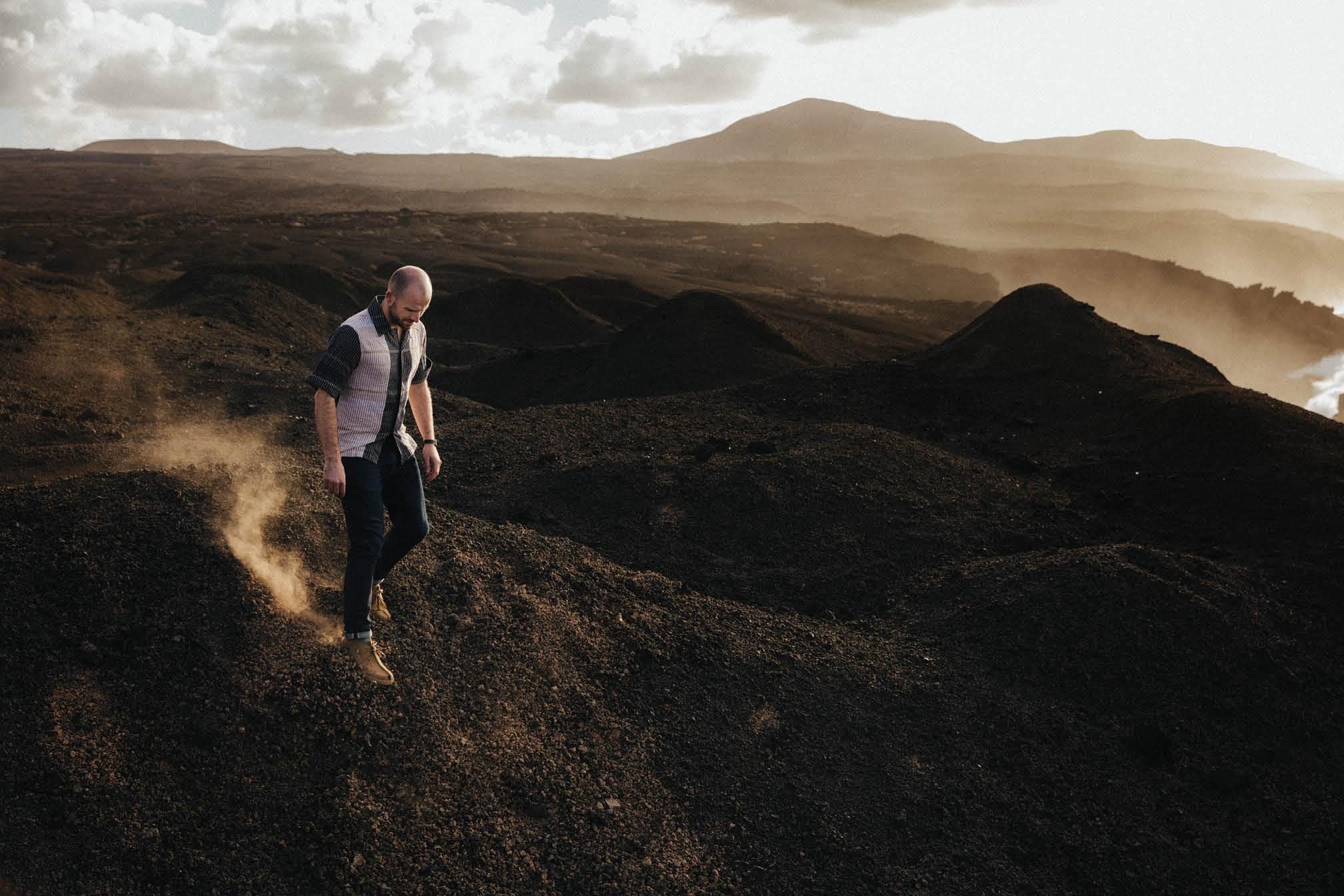 Cover stars
Cover stars
Deep explorations: Midland's path to DJ stardom
Midland is an explorer of his craft, of music and, at times, of himself
“There’s a lot of bullshit in the world of DJing,” says Harry Agius. “Just celebrity worship. I mean, I honestly have no opinions or judgement on how anyone chooses to live their life or make their money, I’m just tired of thinking about what other people are doing and what they’re thinking about me.”
Better known to club-going crowds across the world as Midland, Agius is sitting in a wood-panelled pub on Edinburgh’s busy Leith Walk at the beginning of November, nursing an early-evening pint as the place fills up around us. Local agit-pop heroes The Proclaimers are shortly to go on stage at the city’s Playhouse theatre up the road, and it somehow creates the feel of an authentic Edinburgh experience. Agius, who was raised between Tanzania and England, has been sightseeing and visiting friends (including Achim Brandenburg, aka Prosumer, who lives in the city) with his husband Mike all day.
Later on, he’ll play the second of a three-night residency at Sneaky Pete’s, the most forward-thinking club venue in the city right now. A small black cube buried on the Cowgate, a grimy thoroughfare at the foot of Edinburgh’s tiered, medieval New Town, ‘Sneaks’ nestles amid late-night bars and rock clubs and hosts parties every night that bear the strong curatorial touch of manager Nick Stewart.
The fact that a DJ of Agius’ reputation has chosen this tiny, 100-capacity room gives us a clue as to where his priorities are right now after an extensive re-evaluation of his own career as a DJ and producer in the last two years. He tells us that playing sets in the way he wants creates a real connection with his audience and his craft; his preference is to play all night and work his way towards communion with the crowd, even if that means doing it in a smaller venue. He’s spent the last year firmly defining himself as a DJ of great ability and style – one whose dedication and campaigning sensibility set him apart.
“Even if I had twenty followers on Twitter I’d still do it,” he says when we ask about the forthright political elements of his public persona, advocating trans rights, gay rights and generally taking on the state of the world. “I don’t feel obliged to because I’m a DJ, but at the same time, you can affect people’s lives in a way you can’t fathom. I’ve had young guys come up to me and tell me about coming out… one guy said to me at a show, ‘I’ve just come out to my best friend and this is the first time we’ve danced together’. Which is crazy, you know?”
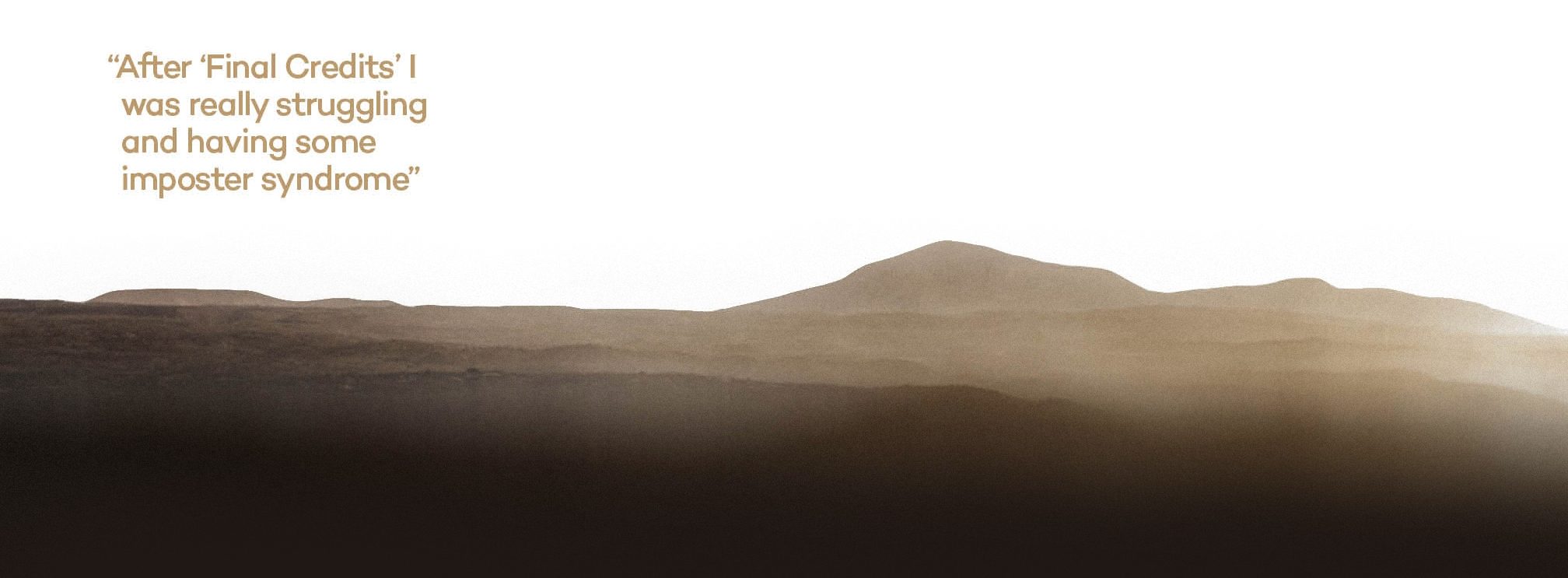
Agius is slim and tall, well-spoken and expressively open. In jeans and sports jacket he gives the air of a young tech industry professional enjoying some after-work drinks, and he doesn’t seem out of place in Leith; Edinburgh’s port district was the sometime hub of drug-fuelled Trainspotting grime in the 1990s, but its working class heart now exists in generally easy-going détente with the wave of artists and creative professionals who have been drawn by cheap rents since the turn of the century. Around us, middle-aged couples shout happily over one another, free from the working week at last, while polite students from across the globe begin to get started on the night ahead.
Yet Agius’ joy and belief in the music he plays is anything but corporate. In many ways he’s the antithesis of the hard-partying, alpha-bro image which many may have, rightly or wrongly, of the superstar DJ. He talks about the self-care needed to deal with the pressures of the job, and the brush with imposter syndrome which he felt after his track ‘Final Credits’ (named the year’s best by this very magazine) and a Radio 1 Essential Mix of the Year shot him to fame in 2016.
In the DJ booth and in his own life, Agius is an explorer, and intense self-reflection is part of what makes him so good. At Sneak’s the night before he opened his three-night residency with a fluent and exciting set which delved in and out of house, techno, electro and disco, shuffling beats and genre in a joyous and emotionally charged fashion. Subtly, the tempo of his all-night, four-hour set surged and built as it progressed. For anyone on the other side of the decks, which sit low and right next to the crowd on the compact two-level dancefloor, it was a stunning show which laid down a marker for all sorts of reasons: its versatility, its firm grasp of the sonic texture of 2018, its command of the energy in the room. Yet for Agius, a self-confessed perfectionist, it didn’t feel right.
“I felt so off my game… I think I went into it a bit complacent,” he says. He’s glad he finally got to include the gorgeous mid-set breakdown of Clams Casino’s sparse take on A$AP Rocky’s ‘Leaf’, and felt a sense of pride in his mix of Benedikt Frey’s squelchy, acidic ‘Clown Time’ into Los Hermanos’ clean UR groove ‘Quetzal’, but the buzz was a bit too heated, with a lot of midweek students in. One guy lifted Agius’ drink, while another enthusiastically showed him the 81 Shazams he had running as he was trying to play. But there’s always tonight, and tomorrow night after that.
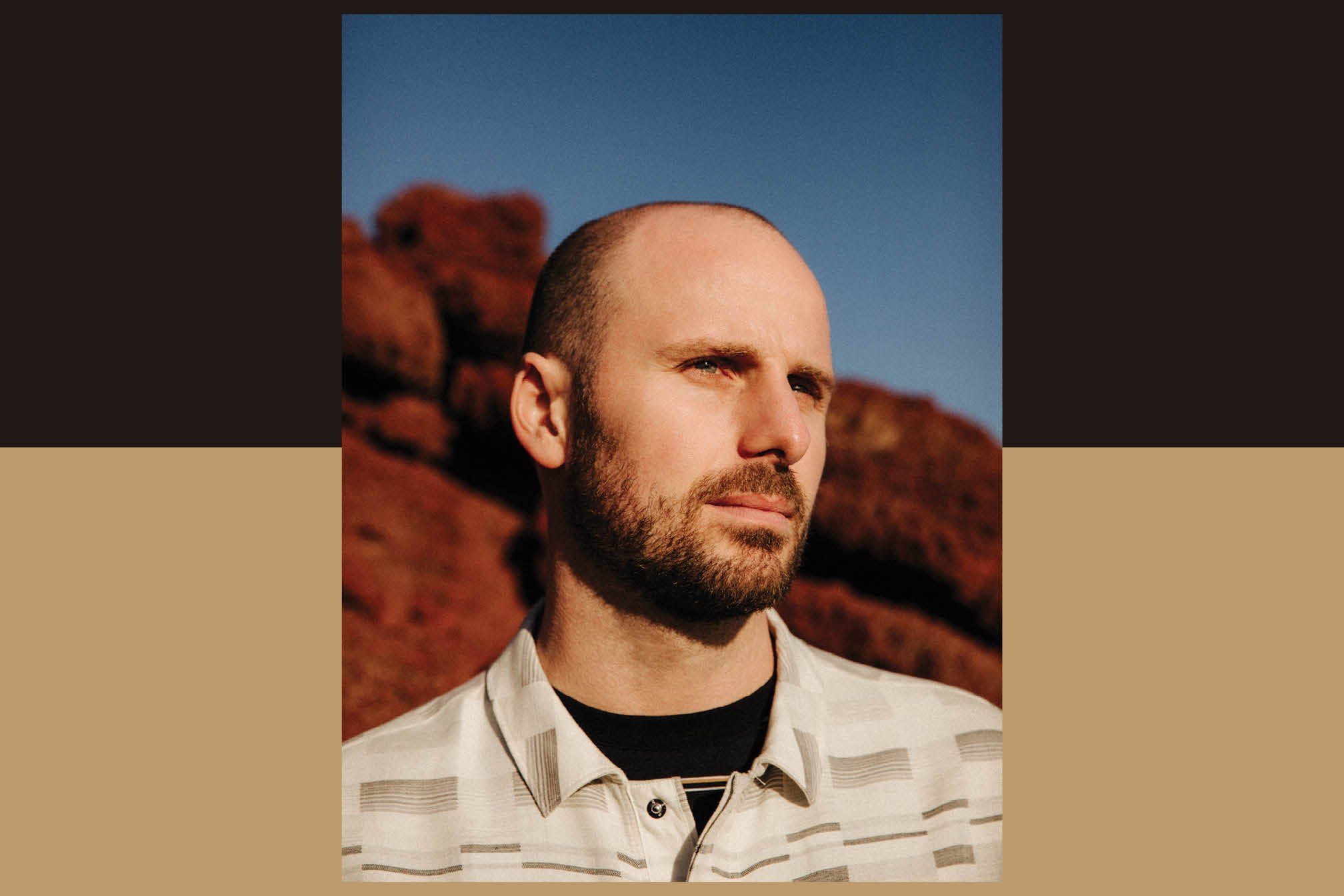
Agius’ sense of self-examination as a person and as an artist, he says, stems partly from his position as the youngest of five siblings and partly from the experience of growing up gay. “I’ve always felt – not through anything my brothers or sisters have done, but just as the youngest – like I’ve been waiting to be asked to come in,” he says. “And growing up gay, you’re always picking up signs from people. You’re always ready for them to disapprove or have a problem with you, and you build scenarios in your head in self-defence, like an airbag. It’s not the healthiest way of thinking, but I’ve been unpicking those years of camouflage recently.”
He has had therapy for the last year – not to make himself ‘better’ but to give himself the tools to deal with adversity. Those tools have also led, directly or otherwise, to his honing of his own ability as a performer. “I’ve spent so long being the butt of people’s judgement, and it’s exhausting,” he says. “But realising that was a big breakthrough in my DJing; I thought, ‘okay, play what you want to play’ rather than ‘Is this record avant garde enough?’ or ‘Does this other DJ think it’s cool?’ I mean, maybe not, but then, could they play it and make it work like I can?
“Over the last couple of years the crowds have got… I don’t want to say better, but they’re more in line with what I do. I used to have people coming up and saying ‘play harder!’, but now they trust me that we’re gonna get there. I think if you treat the crowd with respect, they respect you.”
So why is he in Edinburgh right now, playing to 300 people over three nights, when he could be doing five times the numbers elsewhere in a single evening? “I had a realisation last year after a couple of near-burnouts,” explains Agius. “I had to examine what makes me comfortable as a DJ, and it’s either playing all night or playing with people I know. I find it very hard to get to the club 10 minutes before and pick up from the resident, so I thought, ‘Why not go to clubs where I’ve had good gigs, and suggest things?’ I talked to Nick about doing a residency here over the year, and he suggested doing it over one weekend. That was great, because the more time I have in a city, the more comfortable I get.”
The older group next to us are getting a bit too comfortable, shouting their order over our table at the guy going to the bar. How does not being psychologically at ease affect Agius’ sets? “I’m very sensitive to the vibe and flow of a club,” he says. “Often when I’m DJing, especially in a new place, at least the first hour is just me feeling the crowd out and them feeling me out – this push-and-pull dynamic. The longer I play, the more I settle, because I take DJing really seriously and I care about doing it right. I can’t remember the last time I had a bad gig, which I used to have quite often, and that’s about being more selective with what and where I play.”
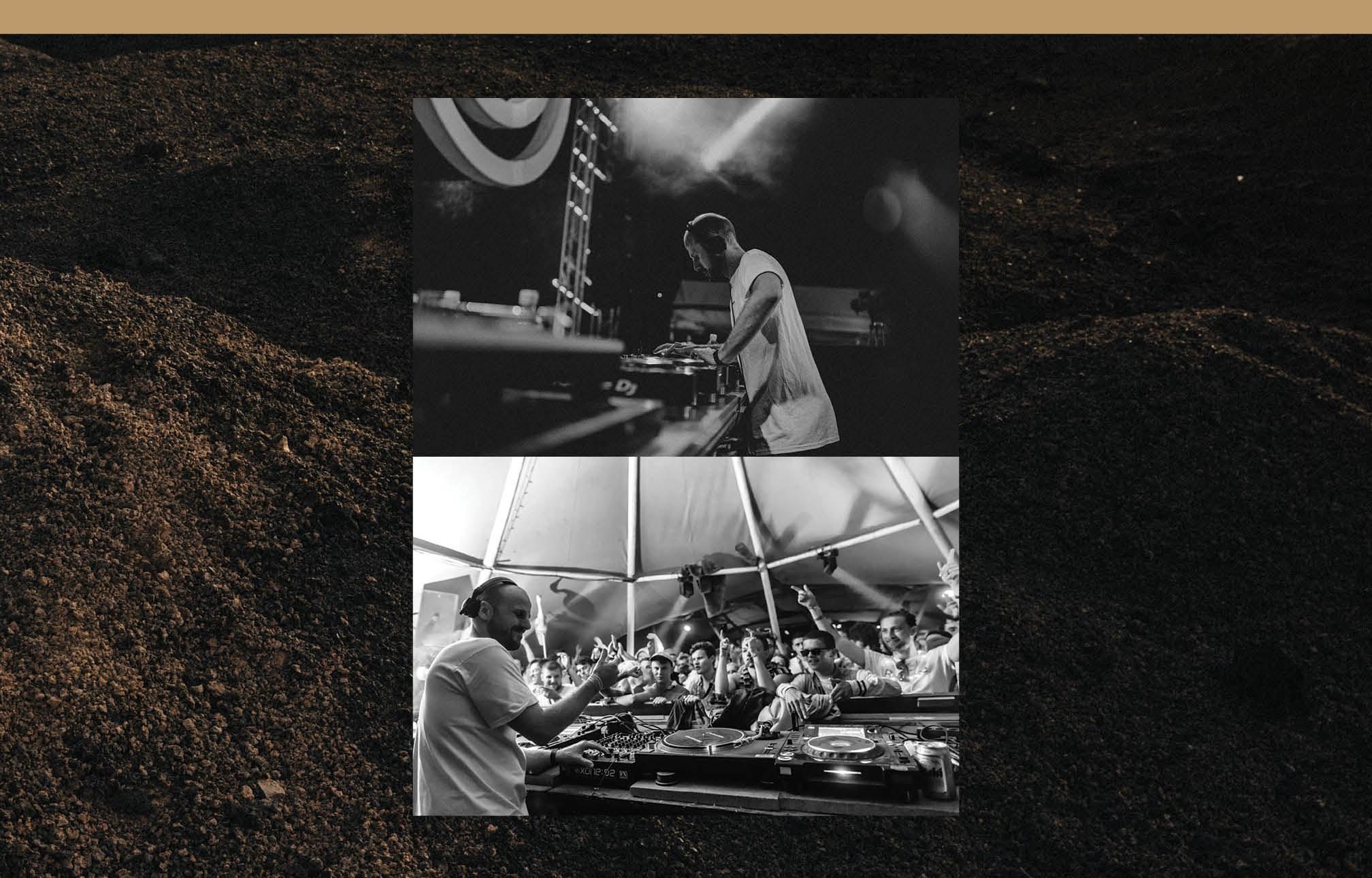
When Mixmag last featured Midland, a little over two years ago, it was as a rising star and producer who had just recorded one of the decade’s best tracks, and whose story – a chance friendship at university in Leeds with David Kennedy, who later became Ramadanman and Pearson Sound, drawing him into the orbit of future friends and contemporaries like Ben UFO and Pangaea – gave him a direct route into the top division. In 2019 he’s a better DJ than ever, but a hard-won sense of humility and a care for his own state of mind grounds him in a manner which deserves deeper praise than just a fresh new sound ever would.
“I feel like when I started DJing, I had no idea what I was doing,” he admits. “Suddenly you get more popular, and you get to play bigger and bigger, but after ‘Final Credits’ came out I was really struggling with what I was going to do next and having some imposter syndrome. It was my manager who said, ‘Do you feel like you constantly need to be growing, or are you at a really nice place now?’ Right now, all I want to do is focus on keeping that special feeling. I really love DJing, and I know there’s so much to learn, which gets exponentially harder the bigger the crowd gets. I’ve played to eight thousand people this year and I played to a hundred people people last night, and I can categorically say you can’t do the same things for both crowds.”
He’s not averse to doing things differently if it’s a situation he trusts – for example the b2b set he played with John Talabot in Bogota, Colombia the week before we meet, or his sets with Craig Richards. Yet Agius is organised in a way that many other DJs find surprising. “Playing with three CDJs is a game-changer,” he says, “because you can always be in the mix, but in a way that’s not relentless. You can play a track for eight minutes and not loop or layer anything, but other times you can bring in drums, bassline, vocals from elsewhere, and it creates something new.”
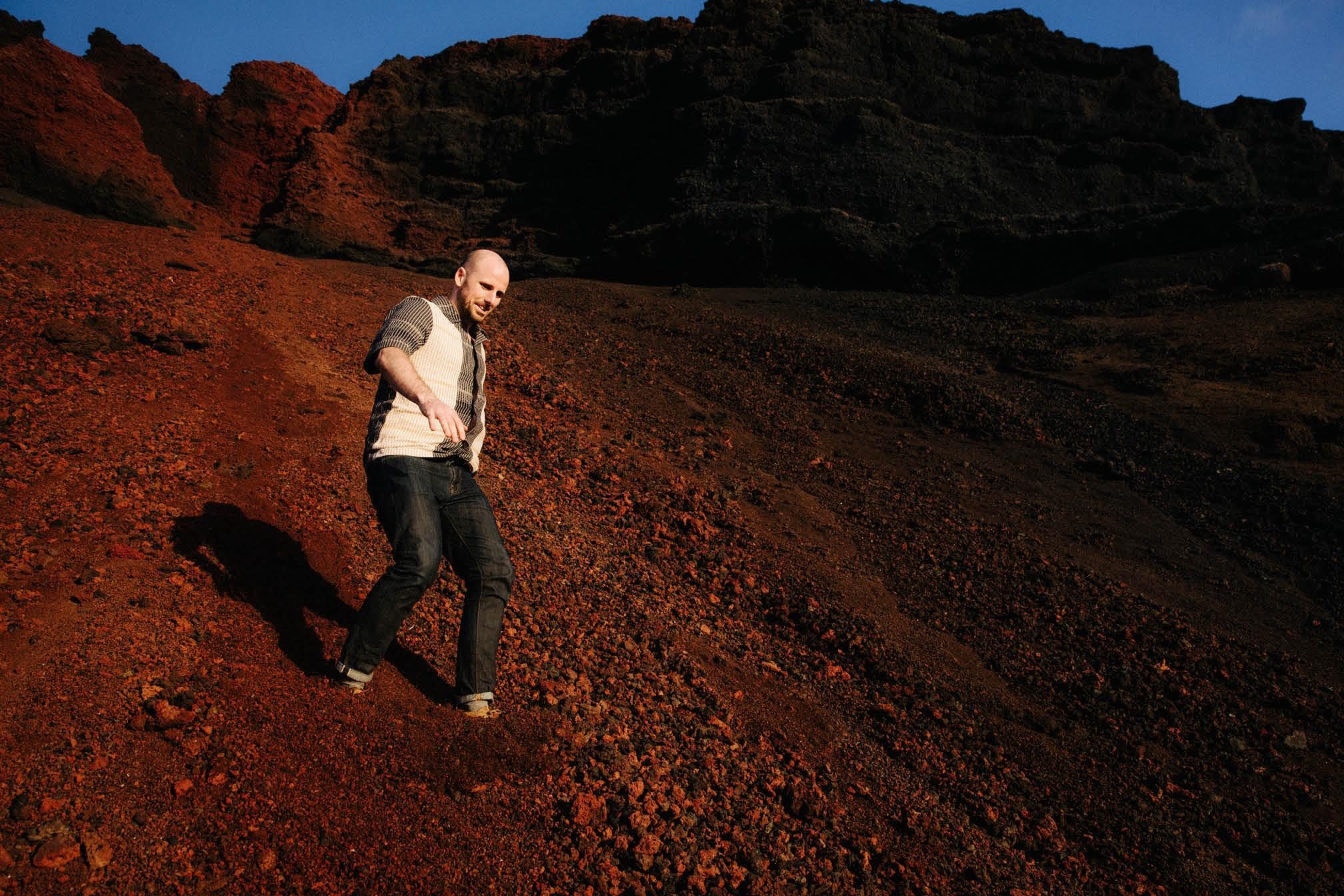
He remembers playing with Craig Richards at Fabric one morning, when the veteran resident simply rocked up at 4am with a bag of records and ‘got on with it’. Richards was astonished at Agius’ elaborate preparations. “I have a tools playlist with percussion samples and a playlist of all these little loops that are always on my stick,” he explains. “For every gig I have maybe 10 or 20 sub-playlists of tracks which I think will relate to it. For tonight, I’ve got a Sneaky Pete’s playlist, the Bogota one, and recent ones from Pittsburgh and New York: they touch a lot of bases.
“I also have a playlist of records I’ve forgotten about, which I should start playing again; I have them divided into acid, electro, disco, groovy, sparse and ‘WTF?’ music. On Thursday I start downloading my promos and buying music to make a playlist of stuff that’s new to me, then I go into older playlists from past months and look again at what I was playing. I’ll start doing that on the plane to the show, which is an hour and a half, two hours, then a couple of hours at the hotel. So a couple of days’ preparation and four hours making the new playlist, plus a day a month ripping records.”
In a way, this relentless preparation has taken centre stage in Agius’ life, as he’s been pulling back from releasing his own music. When he and Mike, a grounding influence who also works in music and travels the world with him, manage to buy a house next year, the plan is to build a studio in the garden and get back to business. “Besides, you don’t have to fill every minute of every day doing something,” he says; though having said that, in the past few days he’s been in Bogota, Boston, Miami, New York, Pittsburgh, London, Brighton and now Edinburgh.
Out on the Walk it’s raining and taxis and Deliveroo bikes splash by, while in the pub Proclaimers fans are shuffling out as a fresh contingent of barflies settles in for the night. The mood in the cosy pub is relaxed and open and anticipatory – a mood to which Agius aspires in his sets.
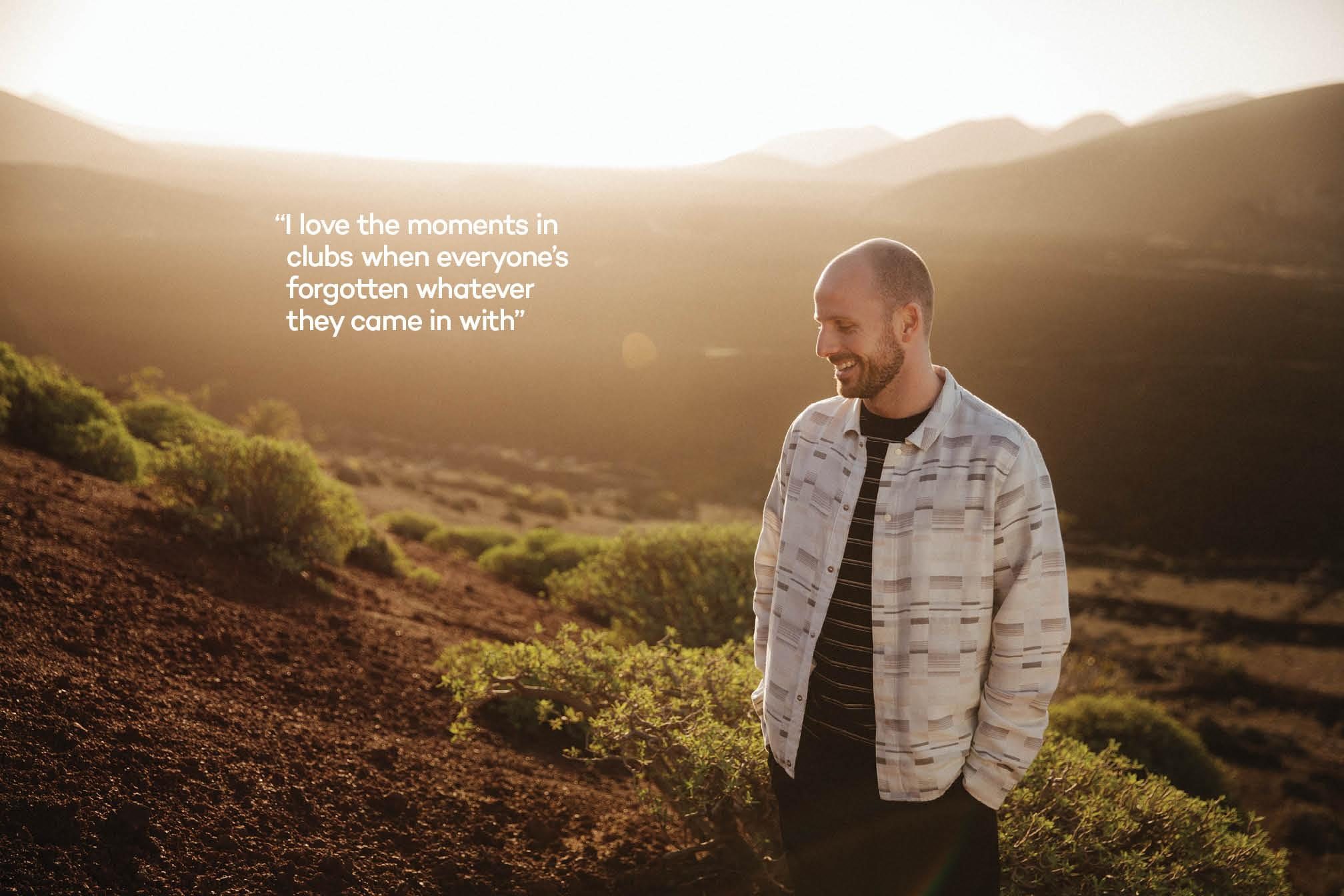
“It’s the reason I love playing queer parties,” he smiles, pint almost drained, dinner date with husband and friends waiting. “I love the moments [in those clubs] when everyone’s totally forgotten whatever they came in with and all the low-level, rumbling anxiety stops.
“I have a really personal connection with a lot of my records now,” he continues. “It sounds really pretentious, but I’ve just started to realise there can be autobiographical element to music. On Saturday I was playing Honcho at Hot Mass in Pittsburgh, chatting to my friend, and he spoke about growing up in New York when HIV and AIDS was decimating lives. He was an AIDS outreach worker after he’d finished high school – he delivered dinner to people and sat with them as they were dying. And the context of that conversation – where I was playing, in this outstanding gay club – it really influenced my set. I played lots of proto-house which came out around the 80s, and I remembered this record called ‘Love Me Tonight’ by Fern Kinney, which was really popular at [1980s East Village gay club] The Saint. I played it at the end and my friend and I were both really choked up… that record meant a lot more than just ‘I’m playing music in a club’, there was a whole context to it. Sometimes a record is just right for the time.”
He may have had one of the biggest club hits of the decade, but Agius admits that when he was starting out, he would often hammer out records just to create a bit of buzz and get gigs. Now, no artificial buzz is required; what he does in a club speaks for itself, as his set at Sneaky’s, before Sneak’s broader and more cultured weekend crowd, does to his satisfaction. On Saturday he even goes on after local resident DJ Cheers at in-house night Teesh, and that goes well too. He must be feeling comfortable.
“I’d much rather hear a DJ get it wrong but really try, than do it right and just dial it in,” he tells us as he waits for his Uber outside the pub on a street shiny from rain. “You’re always told that you’ve got to keep chasing, but actually I’m very happy now. I’m still growing, but in a different way.”
David Pollock is a freelance journalist, follow her on Twitter

